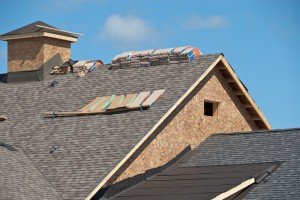Developers, recyclers find ‘path’ to keep shingles from landfills
 Recyclers and developers across the country are teaming up in an effort to recycle an item that has been piling up in our landfills for decades. Tons of asphalt shingles, a petroleum-based product, have been going into landfills during new home construction or after demolition or re-roofing of older homes and businesses.
Recyclers and developers across the country are teaming up in an effort to recycle an item that has been piling up in our landfills for decades. Tons of asphalt shingles, a petroleum-based product, have been going into landfills during new home construction or after demolition or re-roofing of older homes and businesses.
A movement to keep roof shingles out of the waste stream has been catching on, and its effectiveness can be illustrated by a Grand Rapids, Mich., company, Crutchall Resource Recycling, which ground up 30,000 tons of shingles in only three months last summer.
In areas of the country in which building homes was robust before the economic downturn, it is estimated that 70,000 to 100,000 tons of shingles could end up in a single county’s landfills in just one year.
The Northeast Recycling Council estimates that approximately two-thirds of the roofing shingles in the United States are made of asphalt. With discarded asphalt shingles taking up landfill space and polluting the environment by releasing carcinogenic hydrocarbons into the ground, the recycling companies turned to a logical use for ground up shingles – repairing or paving roads as part of the asphalt hot mix.
Developers with a reputation for smooth roads in their subdivisions are starting to use recycled shingles to create “green” streets. A subdivision called Tall Oaks in Elgin, Ill., recently had eight miles of roads constructed with recycled shingles through developer Wyndham Deerpoint Homes.
In addition to using recycled shingles, the “green” roads also are designed to last longer while reducing the amount of asphalt, sand and oil normally needed for paving.
Consumers can help with this cause by making sure their roofing company has a recycling program, or letting it be known that they would like to donate used shingles to environmentally-conscious builders who are able to roof certain homes with used shingles.
Heritage Environmental Services has shingle recycling drop-off locations in seven cities, pushing the practice as a much less expensive alternative than paying the fees to dump them in landfills.
Because shingles are made up of concrete and bitumen — the black, oily material, or tar, that is a naturally-occurring byproduct of decomposed organic materials — environmentalists aren’t able to pinpoint exactly how long it would take for a shingle to decompose in a landfill.
The most common answer, it appears, is “forever.”


